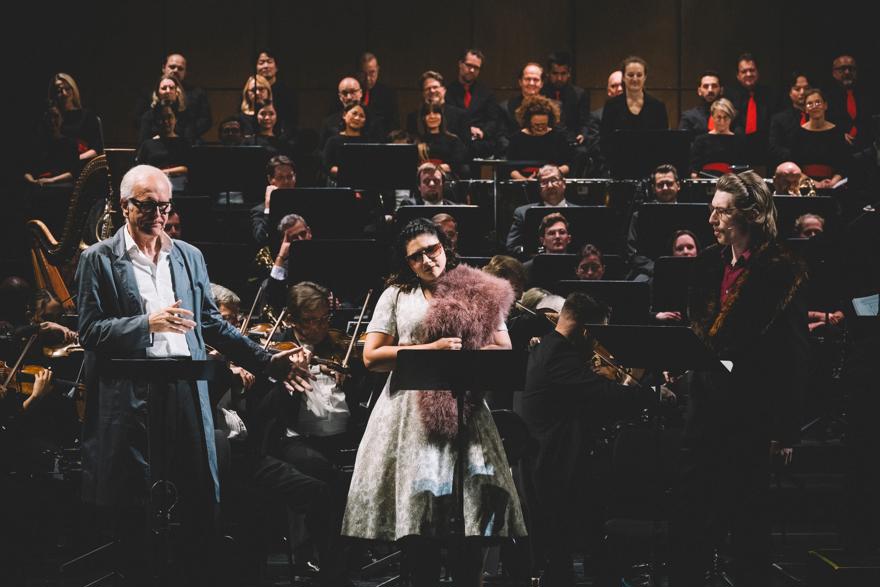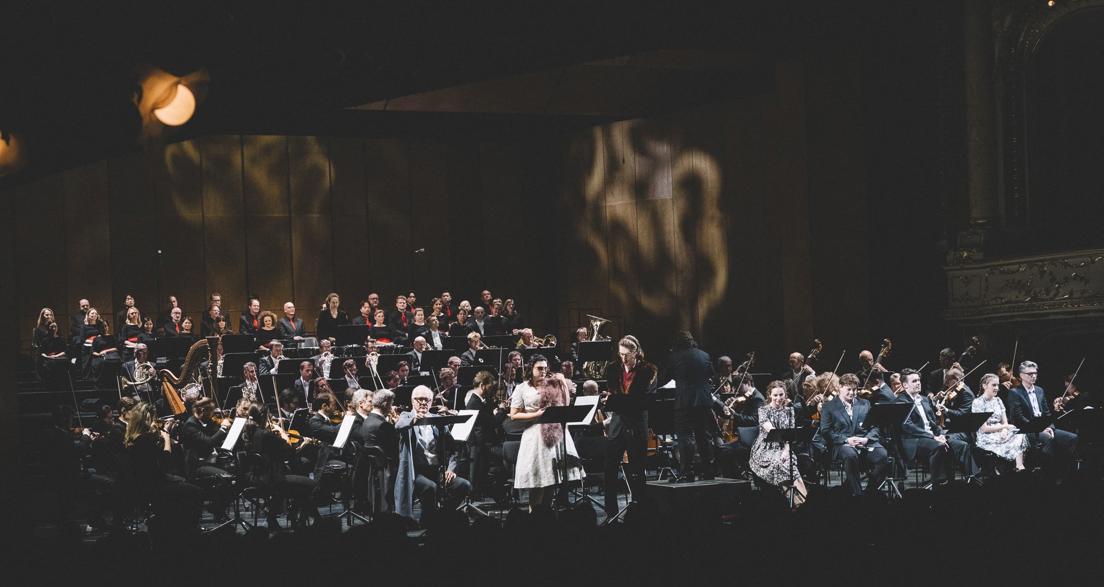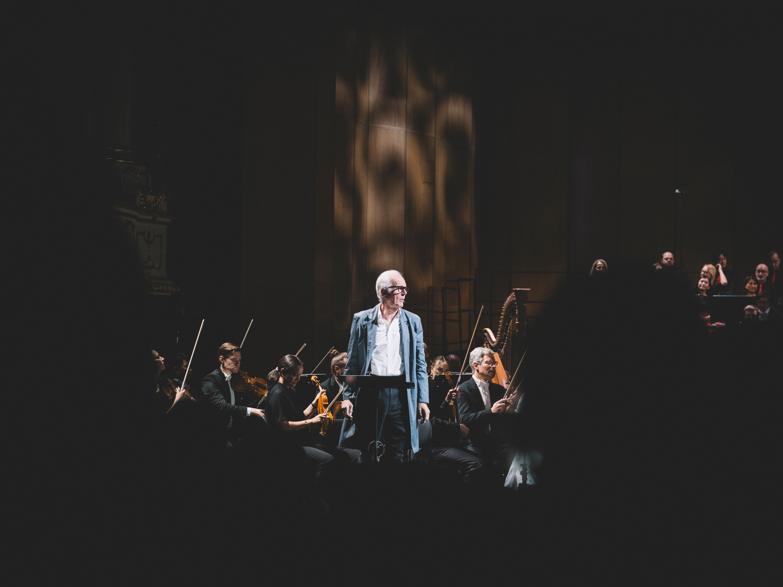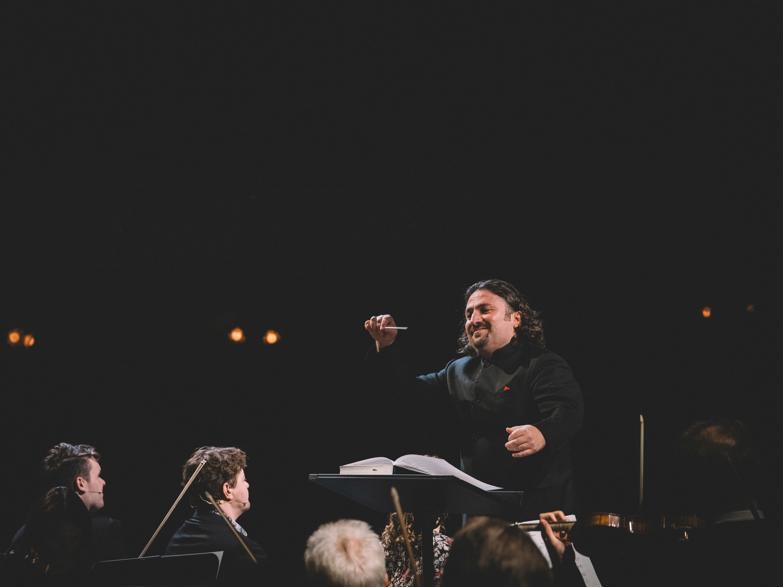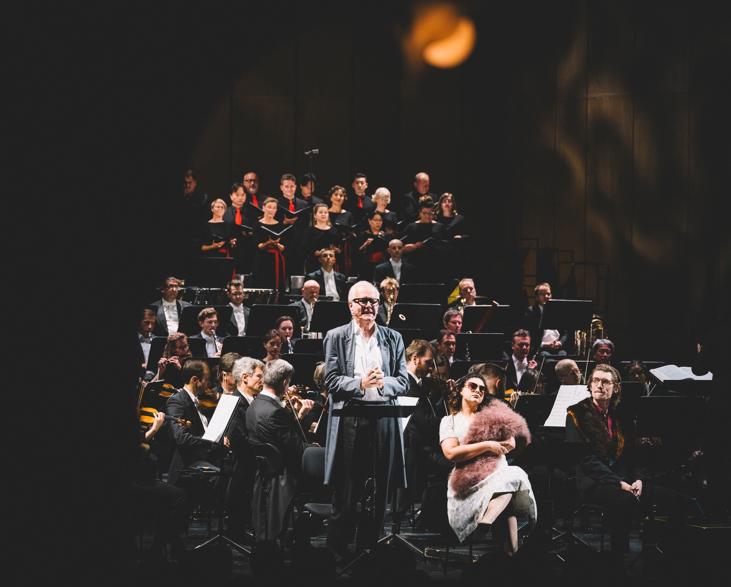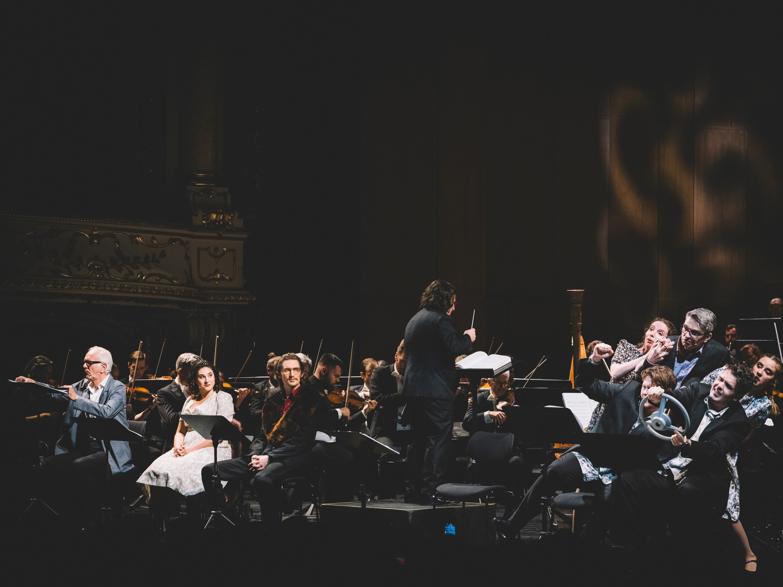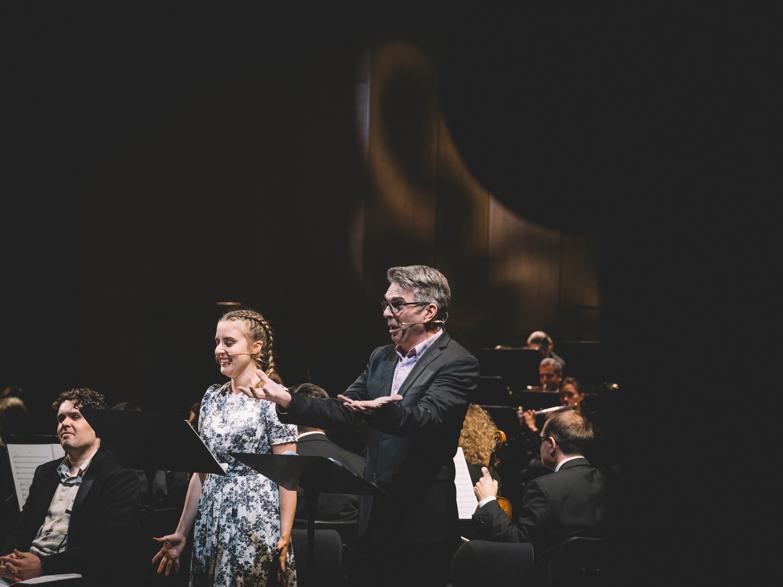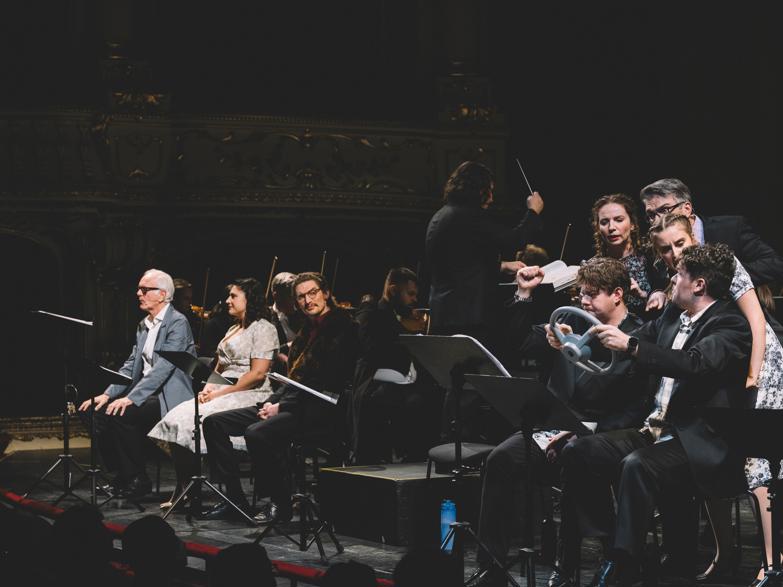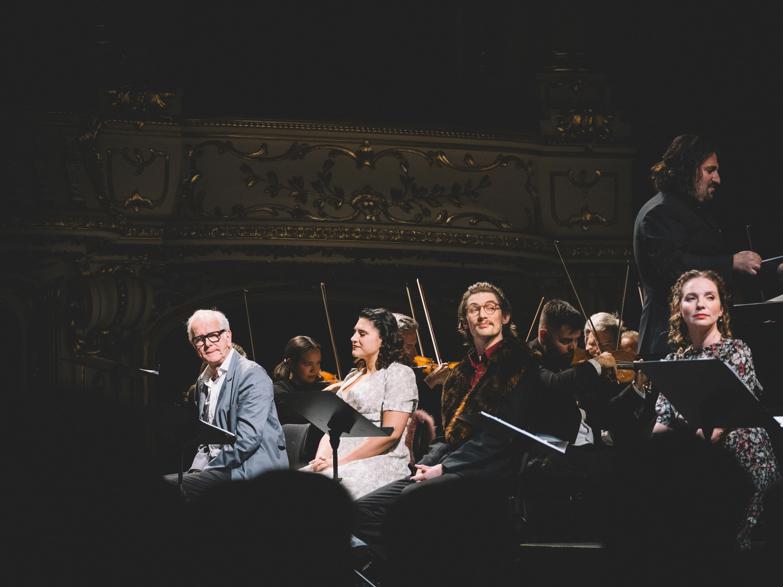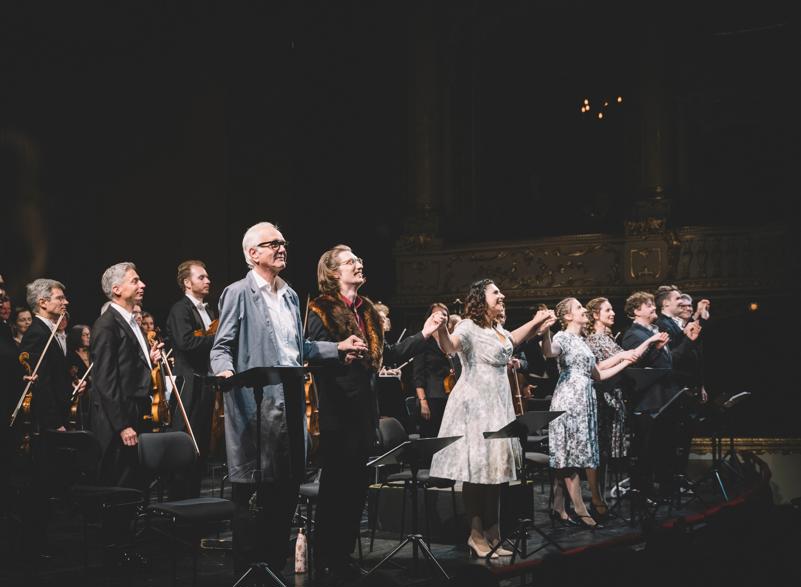
Moskau, Tscherjomuschki
Musical comedy in three acts (1959)
Libretto by Vladimir Maas and Michail Tscherwinski
Concert performance in Russian with German surtitles
Late-night legend Harald Schmidt indulges his passion for musical theatre and guides us through Dmitri Shostakovich’s fast-paced operetta, in which young couples dream of a life in the modern apartment blocks of Cheryomushki on the outskirts of Moscow. But corruption, bureaucracy and chaos dash their hopes. With catchy melodies, biting humour and a touch of romance, Shostakovich exposes the gulf between propaganda and reality. A musical firework display that dissects the social ills of his (and our) time with humour and irony. Brilliant, timeless and entertaining!
After Stalin’s death, Nikita Khrushchev managed to outdo his political rivals by promising to create living space for everyone. A period of cultural and political thaw set in, and the first signs of modest prosperity became noticeable in everyday life. In order to spread the news of the Soviet upswing around the world, Dmitri Shostakovich was commissioned to compose a musical comedy about the first new neighbourhood in the prestigious south-west of Moscow. However, Shostakovich did not use the operetta genre to glamorise it, but rather for a humorous and critical examination of everyday Soviet life. In his operetta, he humorously follows how the optimistic vision fails due to corruption, bureaucracy and absurd obstacles with which the protagonists, three young couples, are confronted.
Musically, he combines catchy melodies with elements of folk music, jazz and waltzes, cleverly integrates self-referential elements, popular hits or popular classics such as Swan Lake, and makes ironic allusions to heroic hymns and propaganda songs that emphasise the contrast between ideals and reality. Moscow, Cheryomushki reflects the challenges of everyday life and illuminates the dreams and disappointments of a society in transition. To this day, the work impresses with its musical versatility, satirical acumen and timeless topicality.
- Musical direction: Mikhail Agrest
- Lighting design: Daniel Weiss
- Dramaturgy: Katharina John
- Chorus Master: Georgi Mladenov
- Afanassi Iwanowitsch Barabaschkin, Hausmeister: Harald Schmidt
- Alexander (»Sascha«) Petrowitsch Bubenzow: Ivan Oreščanin
- Mascha, seine Frau: Sofia Vinnik
- Lidotschka: Katharina Melnikova
- Boris (»Borja«) Korezki: Nikita Ivasechko
- Sergei (»Serjoscha«) Gluschkow: Ted Black
- Fjodor (»Fedja«) Michailowitsch Drebednjow: Will Frost
- Wawa, seine Frau | Ljusja: Corina Koller
- Grazer Philharmoniker,
- Herrenchor der Oper Graz,
- Damenchor der Oper Graz


